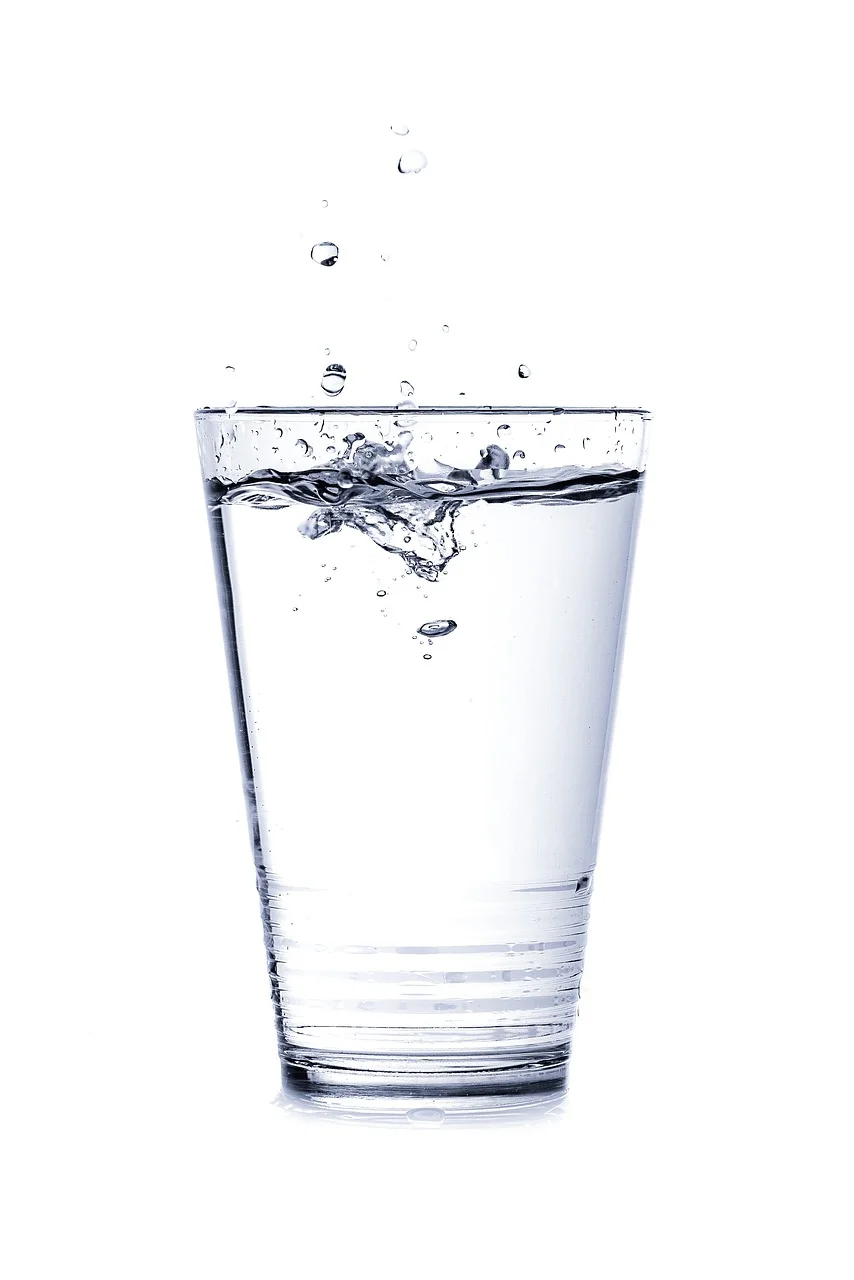Sugar is in virtually every processed food in some way, shape, and form. Food manufacturers have chemically altered our food to make our brains crave it. As a result, the American population continues to become sicker with a compromised quality of life. Sugar cravings can be strong and the temptations are difficult to resist for those who have a sweet tooth. The white stuff can difficult to avoid, and a person has to be a savvy label reader to understand all the different names of sugar. Plus, the names keep changing, which makes it even harder. Don’t be fooled into thinking sugar free is better. As a matter of fact, it’s worse. It’s never a good idea to put toxins into the body and think there won’t be negative consequences.
All Water is NOT Created Equal
Sometime BC (before children), my husband and I drove across the mountain to a larger city. I needed to stop, so he pulled into a convenience store. When I got back into the car, I said to Joe, “You’re not going to believe what I just saw! There was bottled water FOR SALE! Can you believe someone would buy water when it’s FREE?” That seems decades ago…well it was decades ago; my how things have changed.
The United States has some of the safest water in the world. Treatment centers test the water prior to allowing it into the public for consumption, yet the population at large purchases bottled water. Other countries in the world are certainly not as fortunate to experience clean water, but we can actually drink ours from our kitchen or bathroom sink.
According to the Beverage Marketing Corporation, in 2014, the U.S. bottled water market neared 11 million gallons and Americans consumed 34 gallons of water per person. By the end of the decade, bottle water is expected to be the largest beverage category by volume in the United States. Water is free from calories, artificial ingredients, and our body needs this important substance for health. Are you wondering why I’m discussing water yet? What most people don’t realize is all water is not equal.
Dasani and Aquafina are manufactured by Coke and Pepsi, respectfully. Both have a pH under the optimal standards of 6.5 – 8.5. We want to be as close to a pH of 7.0 as possible. When the pH falls below 6.5, there is an acidic attack going on in our mouth. This attack disrupts enamel and root surfaces raising the incidence for cavities and gingivitis. Soft drinks have a pH range from 2.38 to 4.75.
Below is a table that lists the pH of some of more popular waters sold:
BRAND pH
Vitamin water 3.4
Propel Zero 3.5
Aquafina 4.0
Dasani 4.5
Perrier 5.5
Poland Spring 5.8
Crystal Geyser 6.0
Deer Park 6.3
Smart Water 6.5
Great Value Walmart 6.5
Arrowhead 6.8
Evian 7.0
Fiji 7.5
As we get older, our mouth becomes drier. The tendency is to drink water to “wet our whistle.” Medications can make the mouth very dry as does smoking. When the mouth is dry, bacteria stick to the teeth. Many people will drink water to help the dryness, but what choice we make can be a difference in our health. To fight off disease, our bodies need to remain more alkaline. The typical American diet sets us up for an acidic body, and then we drink some acidic bottled water. The body is then ripe for disease to take place. If bottle water is what you do, then here a few tips to bring it back to basic. Place a half teaspoon of baking soda in the water or squeeze the juice of half a lemon into the bottle. Both will raise the pH to be more basic and healthy place. The best choice, in my opinion, it to purchase a good-quality, stainless steel or glass water bottle and fill it from either the sink or filtered refrigerated water. Water used to be free, but we have turned the corner here in American, making water one of the best selling beverages. No wonder Coke and Pepsi wanted in on this market.
Heath bite: Not all bottled water is equal.
Find the Connection
No doubt you have likely heard the phrase "oral systemic link" shot around in literature and on news shows, but what does it mean? The medical and dental community for years had separate thoughts about what the other practiced, and so was divided in assisting people in their health quests. Not so any longer.
What research has been suggesting over the past decade is that the health of the mouth tells us much about the health of the whole body. No longer should we treat each separately. Finding ways to bring health to one, can bring health to the other. Gingival inflammation (gingivitis) is often the first onset of diabetes. It is marked by bleeding and swelling gums, although it slips through the radar of the general population because most people don't clean in between their teeth. You see, this is where the disease starts. The tissue is more fragile and susceptible to disease in between the teeth. It's likely to have more bacteria stuck there because it can hide and not get dislodged with daily activity (eating, drinking, and talking.). The oral cavity can show disease within a few months, but it takes decades for it to show up in our bodies. Take notice to how your gums look. Ask your dental professional how your oral health is at your check ups. Talk to your hygienist, ask questions, and take their advice.
Even though diabetes is a serious disease, heart disease is another issue that has been linked to the oral cavity. Autopsies have shown bacteria that is normally found in the mouth in the heart, causing infections. Endocarditis is a serious and fatal infection. Inflammation in the gums happens because too many bacteria have made a home round the teeth. This initiates an immune response in which blood vessels open to allow white blood cells to start killing the bacteria. Just as easily as the white blood cells can work through to fight the bacteria, the bacteria also have access to enter the blood stream and flow to the heart. Thus, if the bacteria is able to stick around a little while, an infection can occur around the heart.
Pregnancy can be a factor in inflammation and gingivitis. Countless studies have linked oral infections, like severe gingivitis and active periodontal disease, for premature births. An autopsy performed on an infant that was still born revealed oral bacteria in the amnionic fluid causing infection and ultimately death. The mother had untreated periodontal disease.
Taking care of the gums and teeth is more than just brushing, which the only means in which most folks do. Diet places a part as well. Sugar is an inflammatory factor and the main source of food for bacteria. When you consume simple sugars, the bacteria begin to feast and then excrete acids that breakdown tooth enamel and cause the gums to become red. A high carbohydrate diet will leave behind more plaque that hardens into tartar, which is contributing factor to oral disease.
Using something to clean in between the teeth is actually more important than brushing. Why? Remember what I said about the tissue being more fragile in between? Bacteria want to make a home. A place to raise a family and build a community. You give them that opportunity when you don't clean in between the teeth. It's stuck there. It's not going anywhere. It's safe from chewing forces and getting swished around. As a matter of fact, it just has to sit and wait for food to come toward it in the saliva. It grabs what it wants to eat and lives on.
Do you get the picture? This is the oral-systemic link. Seek professional oral hygiene care regularly, and practice good oral hygiene at home. What you do at home makes the biggest impact!
Health-bite: practice excellent oral hygiene care for a healthy body
Wisdom Teeth--Should they stay or Should they go?
Most humans develop 32 permanent teeth. There are occasions in which permanent teeth do not develop, usually due to heredity factors. Some people don't develop any wisdom teeth while most have anywhere from one to four. There are other instances, in fact, when tooth buds don't appear to replace the primary teeth. In which case, primary teeth remain for a longer period of time. On the other hand, I have known some people who have developed more than four wisdom teeth! So why do dentist recommend they be removed? After all, God placed them there. There are some ethic groups whose jaw line is large enough to withstand that extra row of teeth, but not necessarily keep them clean enough to be disease free. Those of us who have a European background don't have jaw lines that provide that extra room for our wisdom teeth. As a result, they become impacted or partially erupted. In which case, they can become painful. Dental professionals have the unique opportunity to see outcomes of poor decisions over a life span. Looking into the mouth of a young adult, the dental professional can in vision, in some ways, the future outcomes of the teeth. On the other hand, looking into the mouth of the older adult gives much information.
"They aren't bothering me" is the usual response from a patient as to why the wisdom teeth are still present. The fact is they don't hurt YET! The photo on the left is a radiograph of an impacted wisdom tooth that has "grown" into the second molar. Because of the inability to clean around it well, bacteria has invaded the second molar. As a result, the second molar may be lost in a lifetime due to extensive decay caused by the wisdom tooth. Please note that the wisdom tooth still needs to be extracted PLUS a root canal, post, and crown will likely be placed on the second molar in an effort to save the tooth. "An ounce of prevention is worth more than a pound of cure" certainly applies to this case.
Other things to consider as the dental patient ages, medications need to be evaluated if an extraction is necessary as well as an expected longer healing time. Dental professionals give recommendations based on overall oral health. Are you seriously going to floss those wisdom teeth? It's difficult to have flossing compliance for the teeth the patient can reach. That's why wisdom teeth are often a reservoir of bacteria that infect the rest of the mouth. Removing the wisdom teeth is beneficial in helping to prevent decay and periodontal disease. If you have any questions regarding your overall dental health, contact your dentist.
Health-bite: Removal of wisdom teeth can prevent future oral disease.









